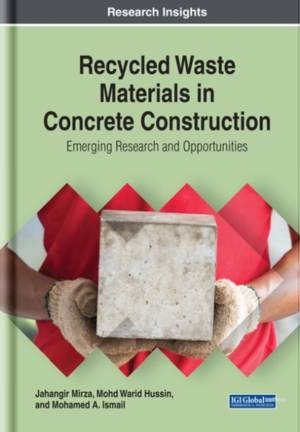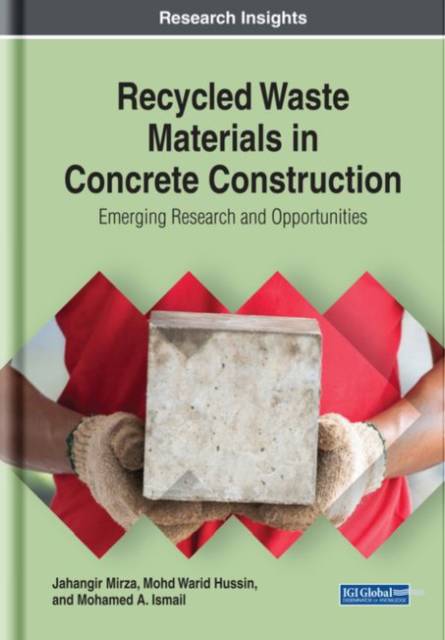
- Afhalen na 1 uur in een winkel met voorraad
- Gratis thuislevering in België vanaf € 30
- Ruim aanbod met 7 miljoen producten
- Afhalen na 1 uur in een winkel met voorraad
- Gratis thuislevering in België vanaf € 30
- Ruim aanbod met 7 miljoen producten
Zoeken
Recycled Waste Materials in Concrete Construction
Emerging Research and Opportunities
Jahangir Mirza, Mohd Warid Hussin, Mohamed A Ismail
Hardcover | Engels
€ 224,95
+ 449 punten
Omschrijving
Due to the demand for new urban construction, its repair, and its maintenance, the concrete and construction enterprises continue to grow, as do their use of finite natural resources. The industry is now under pressure to seek ways to minimize the use of rapidly depleting natural resources. Effective utilization of various waste materials, often found in abundance, may be the key as they not only ward off deleterious environmental hazards, but they have also been known to produce wealth by adding value through ecology. Recycled Waste Materials in Concrete Construction: Emerging Research and Opportunities is a detailed scholarly resource that discusses different types of industrial, agricultural, and natural wastes that are either currently in use in the concrete industry or demonstrate potential for future use and how they can be used as additives or replacements for cement and other construction materials. Highlighting topics such as engineering properties, material durability, and raw materials, this books targets engineers, construction professionals, contractors, consulting firms, government officials, cement and waste material industries, policymakers, academicians, and researchers.
Specificaties
Betrokkenen
- Auteur(s):
- Uitgeverij:
Inhoud
- Aantal bladzijden:
- 150
- Taal:
- Engels
Eigenschappen
- Productcode (EAN):
- 9781522583257
- Verschijningsdatum:
- 30/04/2019
- Uitvoering:
- Hardcover
- Formaat:
- Genaaid
- Afmetingen:
- 178 mm x 254 mm
- Gewicht:
- 544 g

Alleen bij Standaard Boekhandel
+ 449 punten op je klantenkaart van Standaard Boekhandel
Beoordelingen
We publiceren alleen reviews die voldoen aan de voorwaarden voor reviews. Bekijk onze voorwaarden voor reviews.











